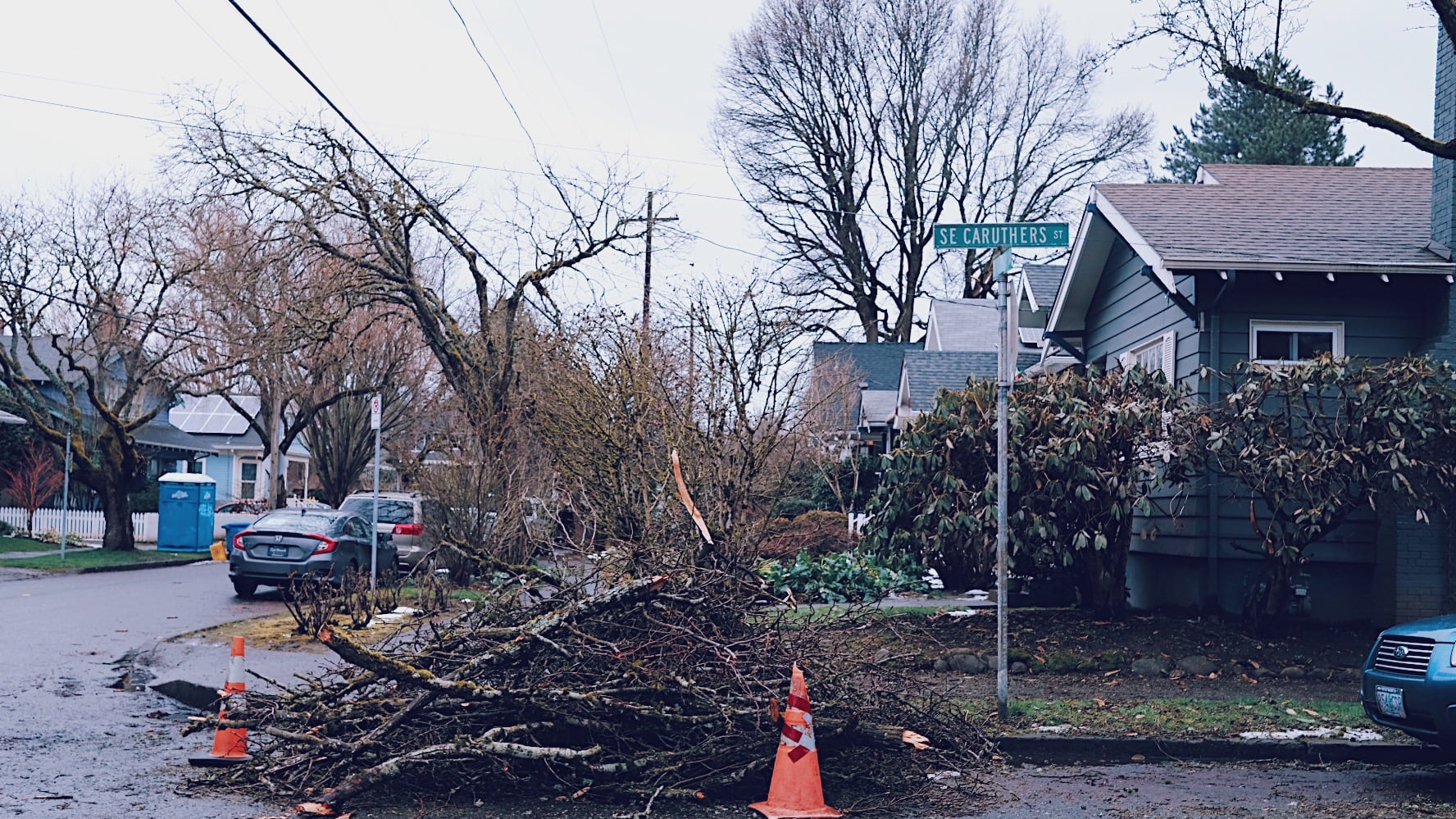Portland Parks & Recreation arborists have responded to more than 600 "tree emergencies" in city streets in the week since an ice storm sent limbs and branches toppling into power lines and roads across the city.
Parks & Recreation spokesman Mark Ross says staff have prioritized removing downed trees near public roadways.
"Some are trees or limbs blocking roadways and others are large, unstable limbs still attached to trees, or trees at risk of falling due to the ice," Ross tells WW in a statement.
Next step? Going into the parks.
"Crews from PP&R's urban forestry division are working around clock on street obstructions and unstable trees and limbs near public roads," he says. "Next will be damaged trees in parks and other city-owned/-managed properties."
The number of trees imperiling public safety in Portland is one way to measure the most devastating winter storm in state history.
With at least 24,000 Oregonians still waiting for technicians to restore their power more than a week after the ice arrived, Portland General Electric also released new data Monday measuring the scale of the damage it's grappling to fix.
The electric utility says it has issued 557,752 feet of new power cables since Feb. 13. That's more than 105 miles of wire that were replaced after ice and tree limbs sent cables crashing to the ground.
PGE says it has replaced 8,649 wires, 666 transformers and 650 poles. The area covered by transmission lines that needed restored? About 376 miles.
That's likely small comfort to the customers still waiting for service to be restored. PGE admitted over the weekend that it was taking longer than expected to restore power to the final 40,000 or so customers, a week after more than 330,000 Oregonians woke without power on Feb. 15.
PGE says that's because it's fixed most of the transmission lines connecting dozens or hundreds of customers, and now it's focused on local outages—with far less impact for each fix, so the results slow down. The utility even made a graphic.


